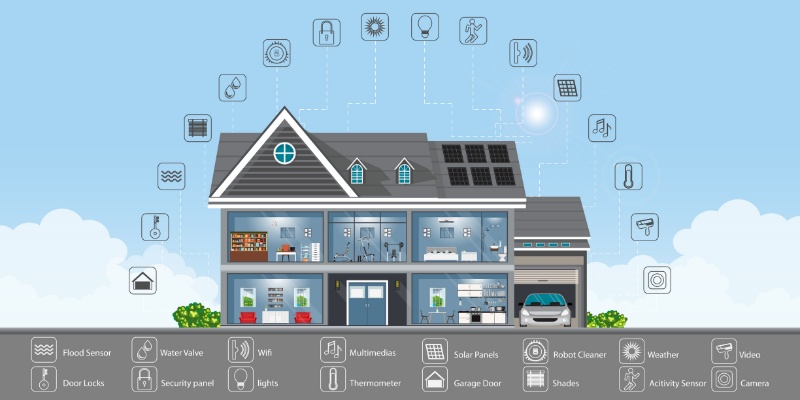
The concept of luxury living has evolved significantly over the past few decades. Once defined solely by expansive properties, opulent décor, and exclusive locations, the definition of luxury now increasingly includes cutting-edge technology. High-end residences today are not just about aesthetics and location; they are about creating seamless, intelligent living environments that enhance convenience, security, and overall quality of life. This evolution is epitomized by the advent of smart homes, where technology integrates with luxury to provide an unparalleled living experience.
The Foundation of Smart Homes
At the heart of smart homes lies an intricate network of connected devices and systems that communicate with each other to automate and optimize various aspects of daily life. This interconnected ecosystem typically includes:
- Centralized Control Systems. The greater the number of interconnected devices you have made by different manufacturers, the more likely it is that you will need a network hub at the heart of the system. Platforms including Amazon Echo, Aeotec Smart Home Hub, Hubitat Elevation, Google Nest Hub, and Apple HomePod allow homeowners to control a large number of smart devices from a single interface. These systems can manage lighting, climate, security, entertainment, and more, often through voice commands or mobile apps.
- Internet of Things (IoT) Devices. These devices are the building blocks of smart homes and include smart thermostats, lighting systems, security cameras, door locks, and kitchen appliances, all of which can be programmed and controlled remotely.
- Artificial Intelligence (AI). AI enhances the functionality of smart homes by learning user preferences and habits, thus providing personalized and predictive services. For example, AI can adjust the thermostat based on the homeowner’s schedule or suggest music playlists based on past listening habits.
Enhancing Security and Safety
One of the most significant advantages of smart home technology in luxury residences is the enhancement of security and safety. High-end homes often feature:
- Advanced Surveillance Systems. Modern security cameras equipped with AI can detect unusual activities and notify homeowners in real-time. These systems often include facial recognition and can distinguish between family members, guests, and intruders.
- Smart Locks and Access Control. Biometric locks, such as fingerprint or retina scanners, offer a high level of security. These can be integrated with other smart home systems to grant or restrict access automatically based on specific criteria.
- Environmental Monitoring. Sensors that detect smoke, carbon monoxide, water leaks, and even indoor air quality can alert homeowners to potential hazards, allowing for swift action to prevent damage or health risks.
Comfort and Convenience
Luxury is synonymous with comfort, and smart homes elevate this to new heights through automation and intelligent systems:
- Climate Control. Smart thermostats learn the household’s routine and adjust heating and cooling systems to optimize comfort and energy efficiency. In-floor heating systems and motorized window shades can also be controlled to maintain the perfect indoor environment.
- Lighting. Smart lighting systems can create the ideal ambiance for any occasion. Homeowners can program lights to change color and intensity throughout the day, or even sync with their circadian rhythms to promote better sleep.
- Voice-Activated Assistants. AI-driven assistants like Alexa, Siri, and Google Assistant can perform a wide range of tasks, from playing music and setting reminders to controlling other smart devices, thereby simplifying daily routines.
Entertainment and Lifestyle
In high-end residences, smart technology also redefines entertainment and lifestyle experiences:
- Home Theaters. Integrated audiovisual systems provide a cinematic experience at home. These systems can be controlled via a central hub or voice commands, allowing for easy operation of projectors, screens, sound systems, and lighting.
- Multi-Room Audio Systems. Music lovers can enjoy high-quality sound in every room with systems like Sonos, which allow for seamless streaming and control of music throughout the home.
- Smart Kitchens. Kitchen technology has advanced with appliances that can be controlled remotely, smart refrigerators that monitor inventory and suggest recipes, and voice-controlled faucets that dispense precise amounts of water.
Energy Efficiency and Sustainability
Sustainability is a growing priority for luxury homeowners, and smart technology plays a crucial role in promoting energy efficiency:
- Energy Management Systems. These systems monitor and optimize energy use throughout the home, reducing waste and lowering utility bills. They can manage everything from lighting and HVAC systems to appliances and solar panels.
- Smart Appliances. Energy-efficient appliances that communicate with each other and adjust their operation based on real-time energy consumption data help in minimizing the environmental footprint of a household.
- Water Management. Smart irrigation systems and leak detectors ensure that water is used efficiently, preventing wastage and protecting against damage.
Integration and Customization
One of the hallmarks of luxury is personalization. High-end smart homes offer extensive customization options to meet the unique needs and preferences of the homeowner:
- Custom Interfaces. Home automation systems can be tailored with custom interfaces that reflect the aesthetic preferences and functional requirements of the residents. This ensures that the technology seamlessly blends with the home’s design.
- Scenario Programming. Homeowners can create specific scenarios or “scenes” that trigger multiple devices at once. For example, a “Good Night” scene might turn off all lights, lock doors, lower the thermostat, and activate the security system.
- Remote Access and Control. Whether at home or away, homeowners can monitor and control their smart home systems via smartphones or tablets. This provides peace of mind and convenience, allowing them to manage their home environment from anywhere in the world.
The Future of Smart Homes in Luxury Living
As technology continues to advance, the future of smart homes in luxury living looks incredibly promising. Emerging trends and innovations include:
- Enhanced AI Capabilities. Future smart homes will feature even more sophisticated AI, capable of anticipating needs and preferences with greater accuracy. This will lead to a more intuitive and responsive living environment.
- Health and Wellness Technologies. Innovations such as smart mirrors that analyze skin health, air purifiers that monitor indoor air quality, and sleep tracking systems will become more integrated into luxury homes, promoting overall well-being.
- Sustainable Innovations. As sustainability becomes increasingly important, smart homes will incorporate more advanced energy-saving technologies, such as home energy storage systems, microgrids, and enhanced solar solutions.
- 5G Connectivity. The rollout of 5G networks will significantly enhance the performance and reliability of smart home devices, enabling faster data transmission and more responsive systems.
The integration of technology in high-end residences is transforming the way we perceive luxury living. Smart homes offer a blend of convenience, security, comfort, and sustainability that is unparalleled. As these technologies continue to evolve, they will further enhance the quality of life for those who reside in these luxurious environments. The future of luxury living lies not just in opulent materials and grand designs, but in the intelligent integration of technology that makes everyday life more enjoyable and efficient. In essence, the modern luxury home is not just a place to live; it is a dynamic, responsive environment that adapts to the needs and desires of its inhabitants, setting new standards for what it means to live in luxury.




